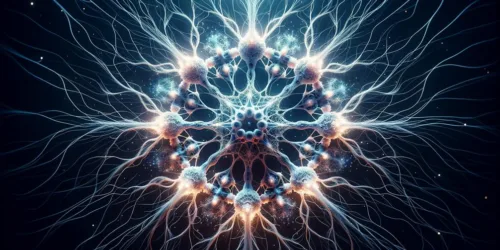Unlocking the Secrets: The Ultimate Guide to Motivation Theories
Picture yourself standing at the entrance of a vast labyrinth, filled with hidden treasures waiting to be discovered. As you take your first steps, a sense of anticipation and curiosity fills the air. You long to uncover the secrets that lie within and understand the driving force behind your own motivation.
In this ultimate guide to motivation theories, you will embark on a journey of self-discovery, exploring the intricate workings of motivation psychology and unraveling the various types and theories that shape our desires and actions.
Brace yourself for a transformative experience as we unlock the secrets that will empower you to tap into your true potential.
Key Takeaways
- Motivation psychologists study how motivation varies within a person or among different people, using cognitive analyses, behavioral anticipation, and affective devices.
- Motivation is the result of internal dispositions, cognitive representations of desired outcomes, and incentives.
- Theories of motivation are divided into content theories and process theories, with content theories explaining what motivation is and process theories describing how it occurs.
- Different types of motivation include external motivation, introjected motivation, identified motivation, and intrinsic motivation, each driven by different factors and goals.
Motivation Psychology: Exploring the Factors

Motivation psychology delves into the intricate factors that contribute to the complexities of human motivation. Through extensive research, motivation psychologists explore the various elements that influence motivation.
These factors can be categorized into biological, psychological, and environmental variables, all of which play a significant role in shaping our motivations. Experimental research conducted in laboratories and correlational research are used to gain a deeper understanding of motivation.
It's important to note that motivation isn't solely driven by external circumstances, but also by internal dispositions, cognitive representations of desired outcomes, and incentives. By studying these factors, motivation psychologists provide valuable insights into the complex nature of human motivation and how it can be influenced.
Theories of Motivation: Content Vs Process

Now let's explore the fascinating world of motivation theories and delve into the distinction between content theories and process theories.
Content theories focus on what motivates individuals, while process theories explain how motivation occurs.
When comparing content and process theories, content theories emphasize the specific needs, goals, and motivating factors that drive individuals. Examples of content theories include Maslow's hierarchy of needs, Alderfer's ERG theory, McClelland's achievement motivation theory, and Herzberg's two-factor theory. These theories provide valuable insights into the different needs and desires that influence motivation.
On the other hand, process theories focus on the cognitive and behavioral processes that lead to motivation. Expectancy theory, equity theory, goal-setting theory, reinforcement theory, and self-determination theory are all examples of process theories. These theories explore how individuals perceive their efforts, rewards, and outcomes, and how they set goals and respond to reinforcement.
While both content and process theories offer valuable insights into motivation, they also face critiques. Content theories have been criticized for their lack of empirical evidence and for oversimplifying the complexity of human motivation. Process theories, on the other hand, have been criticized for their heavy reliance on cognitive processes and their neglect of other important factors, such as emotions and social influences.
Unveiling the Types of Motivation

To truly understand motivation, it's essential to uncover the different types of motivation that drive individuals to take action. Here are four key types of motivation that can impact behavior and performance:
- External Motivation: This type of motivation is driven by external circumstances and rewards. It can include things like praise, grades, or financial incentives. In education, external motivation can be used to encourage students to achieve specific goals.
- Introjected Motivation: This type of motivation is based on self-image or ego and the need to maintain it. Individuals may be motivated by the fear of failure or the desire to avoid criticism. In sports, introjected motivation can push athletes to prove themselves to others.
- Identified Motivation: This type of motivation is guided by personal values and meaningful goals. Individuals are motivated because they believe in the importance or significance of the task or activity. In education, identified motivation can lead students to pursue subjects they're passionate about.
- Intrinsic Motivation: This type of motivation is driven by enjoyment and interest in the goal itself. Individuals engage in activities for the sheer pleasure and satisfaction they provide. In sports, intrinsic motivation can fuel athletes' love for the game and their desire for personal growth.
Understanding these different types of motivation can help educators and coaches tailor their strategies to better motivate individuals in education and sports. It's important to recognize that different individuals may be driven by different types of motivation, and finding the right approach can lead to improved performance and engagement.
Content Theories: Understanding Individual Needs

Unveiling the different types of motivation provides a foundation for exploring content theories, which focus on understanding individual needs and how they drive motivation. From a psychological perspective, understanding motivation requires recognizing the role of needs in driving behavior.
Content theories, such as Maslow's hierarchy of needs, Alderfer's ERG theory, McClelland's achievement motivation theory, and Herzberg's two-factor theory, delve into the specific needs that influence motivation. Maslow's theory suggests that individuals are motivated by a hierarchical arrangement of needs, ranging from basic physiological needs to self-actualization. Alderfer's theory combines existence, relatedness, and growth needs, recognizing that individuals can regress to lower-level needs. McClelland's theory identifies the need for achievement, affiliation, and power as key motivators. Herzberg's theory distinguishes between hygiene factors and motivators, emphasizing the importance of intrinsic factors in driving motivation.
Process Theories: Unraveling How Motivation Occurs

Exploring the inner workings of motivation, process theories shed light on how motivation occurs and the factors that influence it. These theories delve into the intricacies of motivation, providing valuable insights into the dynamic nature of human drive.
Here are four key points to consider:
- Intrinsic vs. Extrinsic Motivation: Process theories examine the distinction between intrinsic motivation, driven by internal factors such as enjoyment and interest, and extrinsic motivation, which stems from external rewards or incentives.
- The Role of Rewards: Process theories also explore the role of rewards in motivation. They delve into how rewards can influence behavior and drive individuals to achieve their goals.
- Expectancy Theory: This theory suggests that motivation is influenced by the belief that effort leads to performance and rewards. It highlights the importance of perceived outcomes and their desirability in motivating individuals.
- Goal-Setting Theory: Another process theory, goal-setting theory emphasizes the importance of setting specific and challenging goals. It suggests that clear objectives and feedback can enhance motivation and performance.
Motivational Theories in Business: Driving Employee Performance

Motivational theories in business play a crucial role in driving employee performance and maximizing productivity within organizations. In order to effectively manage employee engagement and performance, businesses must understand the various theories that can be applied in the workplace.
These theories provide insights into what motivates employees and how to create an environment that fosters motivation. For example, incentive programs and rewards can be used to motivate employees, while autonomy, wellbeing, and feedback are core motivators in the business context.
Additionally, theories such as Alderfer's ERG Theory and McClelland's Achievement Motivation Theory offer frameworks for understanding employee needs and driving their performance. By applying these theories, businesses can create a workplace environment that encourages motivation, leading to increased employee engagement and improved performance management.
Frequently Asked Questions
How Do Cognitive Theories Explain the Influence of Thinking and Perception on Motivation?
Cognitive theories explain how your thinking and perception affect motivation. Intrinsic motivation comes from within, driven by enjoyment and interest. Extrinsic motivation is influenced by external rewards and circumstances. Both play a role in shaping your motivation.
What Are Some Examples of Cognitive Dissonance and How Does It Impact Motivation?
Cognitive dissonance can impact motivation by causing discomfort from conflicting thoughts. For example, if you value health but eat unhealthy food, it can create dissonance. This discomfort can motivate you to align your actions with your beliefs.
How Does the Reinforcement Theory Explain the Role of Rewards and Punishments in Motivating Behavior?
The reinforcement theory explains how rewards and punishments play a crucial role in motivating behavior. Incentives act as powerful motivators, shaping behavior through operant conditioning and reinforcing desired actions.
What Is the Relationship Between Self-Concept Theory and Motivation?
Self-concept theory plays a crucial role in motivation. By understanding who you are and what you value, you can align your goals and actions with your identity, leading to intrinsic motivation and a greater sense of purpose. Additionally, self-concept theory can influence goal setting by guiding you to set goals that are meaningful and aligned with your self-image.
How Does the Control Theory Explain the Impact of Perceived Control on Motivation?
The control theory, like a compass guiding your motivation, explains how perceived control impacts your intrinsic motivation. When you feel in control of your actions and outcomes, your self-efficacy and goal-setting abilities are strengthened, fueling your motivation to succeed.
Conclusion
Congratulations! You have now unlocked the secrets behind motivation theories. By understanding the factors that drive us, such as cognitive analyses and affective devices, you can harness your motivation to achieve greatness.
Did you know that according to a recent study, 85% of employees who feel motivated at work are more productive? So remember, finding your motivation isn't just a personal journey, but it can also have a significant impact on your professional success.
Now go forth and unlock your full potential!






